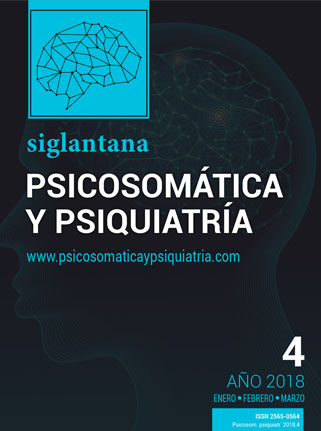Cognitive behavioral intervention in opioid consumption disorder with dependence syndrome in a healthcare professional
Article Sidebar

Main Article Content
Health professionals can present mental health problems or addictions that can negatively influence an adequate professional practice. In Spain specific programs for health professionals with mental disorders have been developing for more than 20 years. The objective of this study is to present a proposal of a cognitive-behavioral intervention in a case of a health professional treated in said program for an opioid consumption disorder with dependency syndrome. The individual psychotherapeutic approach took place during the 4-week admission in the clinical headquarters of RETORN, the program for nursing professionals. The objectives of the admission were the detoxification and the beginning of the detoxification to favor, in last term, the later reincorporation to the professional exercise of sure form. After the cognitive-behavioral approach, maintenance of abstinence to the substance was achieved, subjective discomfort decreased and personal functioning improved. However, after the months of discharge, there was a relapse in the consumption of fentanyl, which was treated effectively at the outpatient level.
Keywords:
Article Details
Copyright
This work is published under a license Creative Commons Reconocimiento-CompartirIgual 4.0 Internacional (CC BY-SA 4.0)
The authors maintain all copyrights and the journal reserves the rights of the first publication of the article.
D. Chávez, Programa de Atención Integral al Profesional Sanitario Enfermo, Clínica Galatea, Barcelona, España
*Dña. Daniela Sofía Chávez Zambrano llevó a cabo el presente trabajo mientras cursaba las prácticas en la Clínica Galatea como parte del curso de posgrado del Máster de Medicina Conductual de la Universitat de Barcelona (UAB).